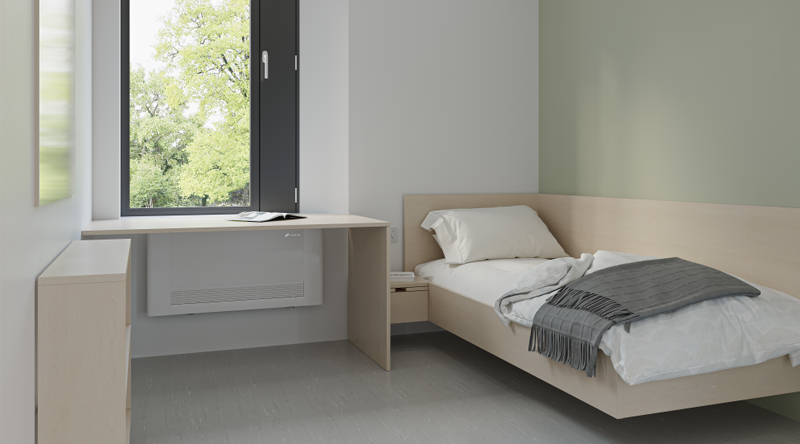Correctional Facilities in UK and Ireland Deploying New Radar Tech
By CN Staff
TORONTO—Xandar Kardian, a Toronto-based industry leader in developing radar signal processing technology for presence detection and vital sign monitoring, has formally announced an integrated partnership with The Lava Group, a Belfast-based leading provider of innovative safer custody and connected health technology.
Continuing Xandar Kardian’s international expansion into correctional facilities in global markets ranging from Hong Kong to the United States to Australia, the partnership with The Lava Group will primarily focus on forging new pilot programs and deployments for Xandar Kardian’s technology in correctional and law enforcement settings throughout the United Kingdom and Ireland.
While the partnership scope between the two companies will be multifaceted, the immediate focus will be on integrating Xandar Kardian’s existing vital sign monitoring and movement detection technology into The Lava Group’s Tephra product suite for the corrections sector in the United Kingdom and Ireland. The corrections industry in these regions is facing multiple challenges, including resource and retention problems, addiction issues and addressing the psychological health needs of inmates. This makes the market an ideal match for upgrades to its inmate monitoring and healthcare technology through the help of Xandar Kardian. The Lava Group has already generated significant interest in Xandar Kardian’s sensors with several pilot programs scheduled to begin in correctional facilities in the coming months. As the alliance matures, Xandar Kardian and The Lava Group also intend to explore co-developing products that can further improve and optimize presence detection and inmate healthcare monitoring for correctional settings.
“Our partnership embodies a pivotal opportunity for correctional institutions and detention facilities that are in desperate need of difference-making innovation,” said Gareth Morrison, CEO of The Lava Group. “In the wake of shrinking staffs, budgetary cuts and overcrowded inmate populations, we believe the key to alleviating the pressures of security management is transformative technology that can be predictive, proactive, and optimize all aspects of staff-inmate interaction. With autonomous monitoring from Xandar Kardian’s sensors, facilities can now make preemptive or immediate interventions when a mental or physical healthcare emergency arises, and can also free up staff time and resources for more meaningful tasks.”
Every year, thousands of inmates die while incarcerated. Around 40% of these deaths are the result of cardiovascular or respiratory illness, overdose, detox or suicide. In the UK, a prisoner dies by suicide every four days, and by cardiovascular illness or drug related overdose every
six days. These challenges are urgent and pervasive — but they’re not inevitable. Xandar Kardian has been credited with helping to prevent dozens of opioid-related overdoses and medically related deaths in the jails where it is presently deployed, including publicly documented “saves” in both Hong Kong and the United States. The company’s autonomous, radar-based vital signs monitoring can help protect inmates’ safety by obtaining highly accurate vital sign measurements while prioritizing privacy, security and staff’s wellbeing. Xandar Kardian sensors require no wearables on the inmate, no video or audio recordings, and no battery to change – providing a completely autonomous, continuous and privacy-secure health-monitoring solution.
Xandar Kardian’s sensors keep guards and staff safe because they are completely contact-free – no wearables, no camera, no microphones, or staff intervention required, meaning no direct interactions with inmates that can be physically threatening. Once deployed, Xandar Kardian’s sensors are linked to a secure local network that provides a “paper trail” of data for each inmate, minimizing organizational risk and serving as an extremely useful resource should additional medical intervention be required from hospital providers.

